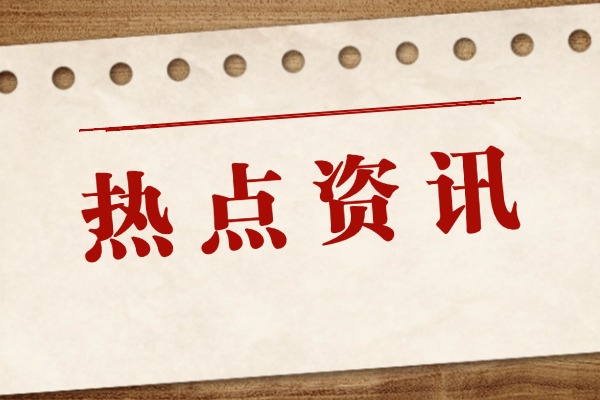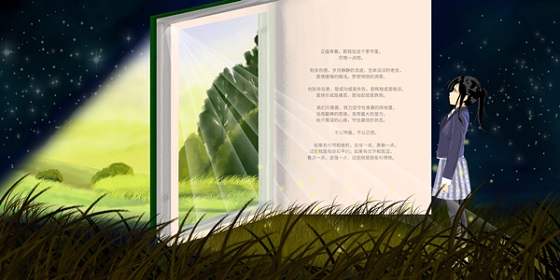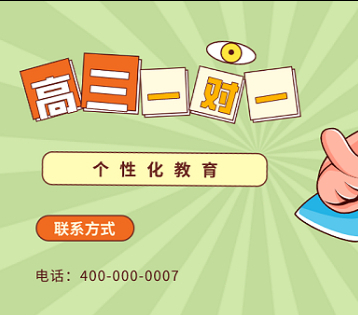省金华十校联考2017-2018学年高一上学期期末联考英语试题附答案
省金华市十校联考2017-2018学年高一上学期期末考英语试题 小编给大家整理了金华十校联考2017-2018学年高一上学期期末考英语试题,有需要的同学可以复制进行打印,多做题有助于增强成绩,希望能帮到大家。随后,小编为大家整理了省金华市十校联考2017-2018学年高一上学期期末考英语试题参考答案,大家做完试题记得核对答案哦!

省金华市十校2017-2018学年高一上学期期末联考英语试题
本试卷分为第I卷(选择题)和第II卷(非选择题)两部分,共150分,考试时间120分钟。
请考生按规定用笔将试题的答案涂写在答题纸上。
第I卷(选择题共95分)
第一部分:听力测试(共两节,20小题;每小题1.5分,30分)
第一节:听下面5段对话,每段对话后有一个小题,从题中所给的A、B、C三个选项中选出较佳选项,并标在试卷的相应位置。听完每段对话后,你都有10秒钟的时间来回答有关小题和阅读下一小题。每段对话仅读一遍。
1. How many brothers does the man have?
A. One. B. Two. C. Three.
2. Why can’t the man return his camera?
A. It is broken.
B. It was bought on sale.
C. It was bought over a week ago.
3. Where does the conversation take place?
A. At a store. B. In a classroom. C. At a bus stop.
4. What does the woman mean?
A. The sweater was washed wrongly.
B. The water was too hot to drink.
C. The toy bear is too small.
5. What are the speakers talking about?
A. What present to buy.
B. Which dress to wear.
C. When to attend the party.
第二节:听下面5段对话或独白。每段对话或独白后有几个小题,从题中所给的A、B、C三个选项中选出较佳选项,并标在试卷的相应位置。听每段对话或独白前,你将有时间阅读各个小题,每小题5秒钟;听完后,各小题将给出5秒钟的作答时间。每段对话或独白读两遍。
听第6段材料,回答第6、7题。
6. Where are the speakers?
A. At home. B. At a restaurant. C. At a sports center.
7. When does the man begin his work?
A. In the morning. B. In the afternoon. C. At night.
听第7段材料,回答第8、9题。
8. What will the woman do next month?
A. Visit the man.
B. Make a business trip.
C. Do shopping in Mexico City.
9. Where can the woman see amazing paintings?
A. At outdoor markets.
B. At the Palace of Fine Arts.
C. At the Museum of Modern Art.
#p#副标题#e#
听第8段材料,回答第10至12题。
10. What did the woman get yesterday?
A. The key to her apartment.
B. A copy of the house rules.
C. A parking space for her motorbike.
11. Where did the woman use to park her motorbike?
A .At the entrance to her apartment building.
B. On the street beside her apartment building.
C. On the sidewalk in front of her apartment building.
12. What does the man suggest the woman do?
A. Take a bus to work.
B. Attend the next house owner’s meeting.
C. Have a talk with the apartment manager.
听第9段材料,回答第13至16题。
13. What was the woman doing when she met a group of guys?
A. She was walking on the road.
B. She was looking at the bus schedule.
C. She was getting aboard a bus.
14. What language did the guys speak to the woman?
A. French. B. German. C. English.
15. How did the woman feel when she first met the guys?
A. Thankful. B. Strange. C. Confused.
16. What did the woman lose?
A. Her wallet. B. Her airline ticket. C. Her passport.
听第10段材料,回答第17至20题。
17. Where did the old lady stay for ten days?
A. In the bedroom. B. In the kitchen. C. In the bathroom.
18. Who found the old lady first?
A. Her neighbor. B. The firefighters. C. Her son.
19. Where did the young woman behave strangely?
A. At an airport. B. At a police station. C. At a wildlife center.
20. What was in the young woman’s large bag?
A. A baby tiger. B. A baby dog. C. A baby cat.
第二部分 阅读理解(共两节,35分)
第一节(共10小题;每小题2.5分,25分)
阅读下列短文,从每题所给的A、B、C和D四个选项中,选出较佳选项,并在答题纸上将该项涂黑。
A
When I was growing up, my mother had a ring she never took off. It was the only ring I ever saw her wear during my childhood. She didn’t really have any other jewelry, and, in fact, I remember my father saying that he didn’t even buy her a ring when they were married.
The years passed. My father, who had come from Mexico in the 1920s to try to earn a living, worked long, long hours at the service station he ran. And my mother worked at home, keeping house for her husband and eight children. With his hard work and her thriftiness(节俭), they sent their first son off to college, then another child and then another. The older children helped with the school fees of the younger ones.
Just as the last two children were graduating from college, my father died suddenly of a heart attack, but my mother lived on for another twenty-three years. Their children had become lawyers, businessmen and teachers. In the last years of her life, my mother was finally able to buy some jewelry that she really loved.
A few years before she died, she told me that she wanted her jewelry to go to her granddaughters. And when she died, it was done. A diamond ring to this one, a pearl ring to that one, and so it went.
Then I discovered it: her first ring. It had been worn so long that it became so thin and would probably break at any minute. I took the ring, polished it with a cloth and carried it to the bank to place in a safety box. To me, it was a treasure that showed the devotion my mother had made for us and the values that she lived.
The rest of my family doesn’t quite understand this, but when I look at that ring, I see the priceless jewel of my mother’s strength and the deep love that she showed us every day of her life.
21. Why did the mother only have a ring in her early years?
A. She had no desire for anything else.
B. She saved every penny for her children.
C. Her husband refused to buy her other jewels.
D. Her husband was too poor to afford other jewels.
22. What do we know about the children?
A. They worked hard to earn their own school fees.
B. They struggled to earn a living when they grew up.
C. The first son helped support his younger brothers and sisters.
D. The last two children failed to finish college due to the father’s death.
23. Why did the author place the ring in the bank?
A. The ring was worth large amounts of money.
B. The rest of her family didn’t want to see the ring.
C. She was afraid the ring might be damaged by her kids.
D. She hoped to remember her mother’s selflessness forever.
24. According to the passage, what does the ring stand for?
A. The mother’s suffering in life.
B. The mother’s devotion to kids.
C. The kids’ deep love for the mother.
D. The kids’ memories of the hard life.
#p#副标题#e#
B
Women are more miserable(悲惨的)than men for almost their entire lives and are happier only after the age of 85, according to a large NHS survey. Growing numbers of British people are reporting unhappiness, the survey found, with women more likely to report serious problems at almost every age.
Twenty-eight percent of women aged 16-24 have mental(精神上的)health problems, compared with 16 percent of men, the survey of 8,000 people found. While this gap becomes smaller between 25 and 34, when 18 percent of both sexes have probable mental disorders, women become unhappier as they enter middle age.
Kate Lovett, dean of the Royal College of Psychiatrists, said that women may be more miserable because they “are still more likely to bear the caring responsibilities at home”. This duty may lessen in old age, when they are no longer responsible for children and elderly parents at the same time. Sixteen percent have serious problems over the age of 65, falling to 14 percent over 85.Nineteen percent of men of this age appear to have a mental problem. Kate explained, “Men who are single are more likely to develop mental problems and men at this age may be more likely to be on their own.”
“Thankfully, women are more likely to speak out about their mental health problems and ask for support from services.” Stephen Buckley, of the Charity Mind, said. This may explain why far fewer women than men kill themselves for mental health problems.
The survey also found that youth mental illness is up almost half since 2012 and one in four young women suffers from a mental health condition. The reasons for rising rates of mental illness are yet to be found. If the rates of a physical disease were rising so quickly, it is difficult.to believe that we would be so slow finding out why.
25. What’s the main idea of the text?
A. Women are generally unhappier than men until 85.
B. Women devote much more to the family than men.
C. Mental health problems increase gradually with age.
D. Mental health problems can be solved easily by women.
26. According to Kate, why do women feel unhappier in middle age?
A. They probably live alone and feel lonely.
B. They begin to have serious health problems.
C. They have no one to talk to about their problems.
D. They have too much duties as a parent and daughter.
27. How does the author sound in the last paragraph?
A. Hopeful. B. Curious. C. Concerned. D. Determined.
C
The Fennec fox is also known as the desert fox since it survives in the Sahara Desert(沙哈拉沙漠). It is the smallest of the species of foxes, and quite a few people wish to raise it as a pet because of its appearance. However, this is very rare, as it needs special care and attention. Let’s take a look at the basic information on the Fennec fox, including its physical appearance ,natural habitat, and diet.
Physical Appearance
The Fennec fox is the smallest type of fox, with a body length of about 9.5-16 inches, and 6-inch-long ears. It weighs only around one kilogram. It has a cream-colored, furry body, with a black-tipped tail.
Their ears are the largest among all foxes relative to the body size, which not only provide them with great hearing, but also radiate the extreme desert heat and thus help to keep the body cool. Moreover, in order to walk on the hot sand, a Fennec fox’s feet are covered with thick fur. Not only that, the feet also help in digging, as this animal lives
under the ground.
Habitat and Lifestyle
The habitat of this animal is mainly in the Sahara Desert, and also in other parts of North Africa. The Fennec fox is usually active during the night. This character helps it deal successfully with the extreme heat in the desert.
As an extremely social animal, it often lives in groups of ten and each group has its own land. This animal is, however, aggressive too, ready to attack, especially in the mating(交配)season, when they all compete with each other for a mate.
Diet
The Fennec fox is an omnivore(杂食动物). While it can survive on plants, it also needs other items such as insects, rabbits, birds and eggs. Getting used to living in the desert allows it to survive for long periods without any water. They are known to take in water when eating food, but will drink water if available.
28. What helps the Fennec fox survive in the desert?
A. The small body size. B. The great hearing.
C. Getting active at night. D. Living in groups.
29. The word “radiate” (Paragraph 3) is closest in meaning to ______.
A. send out B. take in C. suffer from D. turn down
30. Which of the following statements about the Fennec fox is TRUE?
A. It seldom attacks others.
B. It’s difficult to raise it as a pet.
C. It can survive without any water.
D. It’s the smallest animal in the desert.
#p#副标题#e#
第二节(共5小题;每小题2分,10分)
根据短文内容,从短文后的选项中选出能填入空白处的较佳选项,并在答题纸上将该选项标号涂黑。选项中有两项为多余选项。
Anger is a valuable emotion, even though we tend to see it as a problem. We think of anger as harmful. But anger is actually beneficial. The key lies in what we do with our anger. 31 When we express our needs calmly and without judgment, we show respect to others and to ourselves-and maybe we even get our needs met.
When we’re angry, we yell, criticize, judge, shut down, give the silent treatment or say, “I’m fine!” (without of course being fine). 32 They feel bad, and we might feel worse. We might regret the insults(无礼)and judgments we brought. We might feel upset that we didn’t understand the real reason behind our anger.
33 However, how you express it may greatly influence the environment that you’re in, as well as future opportunity. While expressing your anger at work may be considered impolite, there are certain ways that will help with this process.
Use a non-aggressive(非攻击性的)tone. People are more likely to listen and respond calmly to you when you treat them calmly and respectfully. “If you treat someone in an aggressive manner, the natural response is to shut down, leave, or act aggressively in return,” write Chapman and Gratz. So avoid raising your voice or being aggressive. 34 This helps you get a better sense of your tone.
Learn how to control your feelings in many different environments. 35 If we know how to control our sense of reactivity then we may respond in a more proper way. Understanding ourselves and how we respond may need some self-exploration. Certainly the negative or positive results of expressing anger are still being studied. In the meantime, we do know that improving our understanding of self and how we respond can have a great impact on our work and home environments.
A. Getting anger at work is common.
B. In other words, it depends on the actions we take.
C. These actions end up hurting both the others and us.
D. Having the ability to respond to different events may serve us well.
E. Thinking back to the cause of anger will help us explore the problem.
F. There are things people should remember when they express their needs angrily.
G. Instead, watch yourself in the mirror or record yourself as you express your anger.
第三部分 英语知识运用(共两节,45分)
第一节 完形填空(共20小题;每小题1.5分,30分)
阅读下面短文,从短文后各题所给的四个选项(A、B、C和D)中,选出可以填入空白处的较佳选项,并在答题纸上将该选项标号涂黑。
I always dreamed of becoming a full-time writer. After two years as a salesman, I 36 my job and made up my mind to realize my 37 . No one could tell me whether I would succeed or not. I rented a basement and 38 to write. I had so many things to write because the enthusiasm(热情)was 39 in my heart.
After a year or so, 40 , I began to doubt myself. I found it 41 to earn my living by writing. None of my novels were 42 that year. But I 43 to follow my dream-even though it meant living with uncertainty and fear of 44 . I believed anyone with a dream must learn to struggle for the 45 .
During the hardest period of my life, a friend came to see me and tried to 46 me, “Come to our company, 47 we will pay you 2,000 dollars a month.” 2,000 dollars was really a big fortune at that time. It would enable me to live a 48 life. As the money was dancing in my 49 , something cleared my senses. Hadn’t I dreamed of being a writer, a full-time writer?
“Thanks, but no,” I said 50 , “I’m going to stick to writing.”
Again and again, I said to myself, “I will be 51 . People will love my novels.”
52 my first novel was published in 1991. I had the kind of success that few writers ever 53 .
Twenty years have passed, but the effect it had on my life has 54 . Now I often 55 the time working in that cold basement. I will say, “Anyone with a dream and persistence will be successful.”
36. A. took up B. gave up C. applied for D. prepared for
37. A. mistake B. glory C. dream D. weakness
38. A. set down B. settled down C. bent down D. looked down
39. A. decreasing B. failing C. exploding D. burning
40. A. however B. though C. therefore D. anyhow
41. A. difficult B. changeable C. enjoyable D. normal
42. A. produced B. attacked C. ignored D. accepted
43. A. pretended B. determined C. waited D. agreed
44. A. anxiety B. danger C. failure D. pain
45. A. intelligence B. reality C. money D. goal
46. A. persuade B. calm C. warn D. require
47. A. or B. but C. and D. so
48. A. healthier B. poorer C. better D. simpler
49. A. hand B. head C. pocket D. wallet
50. A. doubtfully B. eagerly C. firmly D. willingly
51. A. successful B. faithful C. sincere D. generous
52. A. Gradually B. Suddenly C. Actually D. Finally
53. A. experienced B. admitted C. designed D. proved
54. A. ended B. weakened C. changed D. lasted
55. A. hear of B. think of C. dream of D. complain of
#p#副标题#e#
第II卷(非选择题 共55分)
注意:请将答案写在答题纸上,写在本试卷上无效。
第三部分:语言运用(共两节,45分)
第二节(共10小题;每小题1.5分,15分)
阅读下面材料,在空白处填入适当的内容(1个单词)或括号内单词的正确形式,并将相应答案写在答题纸上。
The Amber Room was first designed for Frederick I. The treasure was decorated with gold and 56 (jewel). Then the next king of Prussia, Frederick William I, gave 57 to Peter the Great as a gift. He couldn’t have imagined his gift would have such an 58 (amaze) history. The room served as a small 59 (receive) hall at that time. After that, Catherine II asked her artists to add more details 60 the Amber Room, 61 (make) it one of the wonders of the world.
Later, the Amber Room, 62 belonged to Russia, was missing and it was said to have been stolen by German Nazis. And what 63 (real) happened to the Amber Room remains a mystery. Recently, the Amber Room 64 (rebuild) by artists by studying the photos of the former one to celebrate 65 300th birthday of St Petersburg.
第四部分:写作(共两节,40分)
第一节:单句翻译(共5小题;每小题3分,15分)
阅读下列各小题,根据汉语提示和句末括号内的英语单词、短语及要求完成句子,并将答案写在横线上。
66. 我认为是汤姆,而不是你,是值得表扬的。(rather than, deserve,用强调句)
__________________________________________________________________________________________
67. 爸爸坚持让我们说服他们与我们合作。(insist, persuade)
__________________________________________________________________________________________
68.你有没有找到属于汤姆的字典? (belong to)
__________________________________________________________________________________________
69. 地震不仅毁了他的家乡,而且严重影响了那里的野生动物的生活。(not only…but also…, affect)
__________________________________________________________________________________________
70. 众所周知,世上没有免费的午餐。事实上,勤奋在日常生活中起着重要作用。(no such…as…, role)
_________________________________________________________________________________________
第二节:应用文写作(25分)
假定你是李华,金华市博物馆将于本周日举行中国剪纸 (paper-cutting) 艺术展。请你用英文给外教Henry写封信,邀请他一同参观,要点包括:
1. 展览时间、地点及内容;
2. 简要介绍剪纸艺术:历史悠久、形状各异、烘托节日气氛……
注意:
1. 词数100左右。
2. 可适当增加细节,以使行文连贯。
- 热门课程
- 热门资讯
- 热门资料
- 热门福利
-
 黄河小班课人数多吗?教学效果怎么样?黄河小班课之前就有家长和学生想要了解过,今天为了满足大家的要求,小编就来好好给大家解答一下关于黄河小班课的一些内容,让大家能够更加方便地做出选择。 一、黄河小班课人数多吗? 黄河小班课的人数控制得挺讲究,既不是那种三五个人的微型小组,也不会像其他学校那样挤着四五十个人,一个班大概在6到15人
黄河小班课人数多吗?教学效果怎么样?黄河小班课之前就有家长和学生想要了解过,今天为了满足大家的要求,小编就来好好给大家解答一下关于黄河小班课的一些内容,让大家能够更加方便地做出选择。 一、黄河小班课人数多吗? 黄河小班课的人数控制得挺讲究,既不是那种三五个人的微型小组,也不会像其他学校那样挤着四五十个人,一个班大概在6到15人 -
 “白驹过隙”怎么读?到底有什么含义?“白驹过隙” 是形容时光的经典表达,可你真能笃定 “驹” 字读 “jū” 而非 “jú”?而且 “白驹” 为何是 “白色的小马”,“过隙” 又特指什么缝隙? 一、“白驹过隙”怎么读? “白驹过隙”的正确读音是bái jū guò xì,“白驹”指白色的骏马,常被引申为太阳的光芒或飞速流逝的时
“白驹过隙”怎么读?到底有什么含义?“白驹过隙” 是形容时光的经典表达,可你真能笃定 “驹” 字读 “jū” 而非 “jú”?而且 “白驹” 为何是 “白色的小马”,“过隙” 又特指什么缝隙? 一、“白驹过隙”怎么读? “白驹过隙”的正确读音是bái jū guò xì,“白驹”指白色的骏马,常被引申为太阳的光芒或飞速流逝的时 -
 博大单招在文化课提升方面优势如何?补习效果好吗?单招相信第一次接触的家长和同学们有很多问题都不了解,很多家长为了让孩子更好地学习就去选择一个合适的单招补习,那么博大单招在这方面的优势到底怎么样?能不能帮助孩子更好地提升呢?今天我们就来一起好好了解一下。 一、博大单招在文化课提升方面优势如何? 博大单招在文化课提升这方面那真的是研究得透透的
博大单招在文化课提升方面优势如何?补习效果好吗?单招相信第一次接触的家长和同学们有很多问题都不了解,很多家长为了让孩子更好地学习就去选择一个合适的单招补习,那么博大单招在这方面的优势到底怎么样?能不能帮助孩子更好地提升呢?今天我们就来一起好好了解一下。 一、博大单招在文化课提升方面优势如何? 博大单招在文化课提升这方面那真的是研究得透透的 -
 “琨玉秋霜”怎么读?到底有什么含义?“琨玉秋霜” 中的“玉” 和 “秋霜” 都是自带高洁感的意象,可 “琨” 字到底读 “kūn” 还是 “hún”?单看字面像在描绘玉石与秋霜的景致,却猜不透为何要将这两种事物组合,更不清楚它的核心指向是写景、咏物还是喻人。今天咱们先把读音校准,再拆解这四字里藏着的纯粹与庄重。 一、“琨玉秋霜”
“琨玉秋霜”怎么读?到底有什么含义?“琨玉秋霜” 中的“玉” 和 “秋霜” 都是自带高洁感的意象,可 “琨” 字到底读 “kūn” 还是 “hún”?单看字面像在描绘玉石与秋霜的景致,却猜不透为何要将这两种事物组合,更不清楚它的核心指向是写景、咏物还是喻人。今天咱们先把读音校准,再拆解这四字里藏着的纯粹与庄重。 一、“琨玉秋霜”
-
 2022高考英语基础知识点!西安伊顿老师带你了解!2022高考英语基础知识点!西安伊顿老师带你了解!高中的英语是一个需要长期积累以及记忆的科目,在高考中只有针对这些知识进行一定的了解和积累,才可以在考试中取得好成绩。针对这种情况,小编请到了西安伊顿老师来给大家总结归纳一下关于高考英语基础知识点的记忆内容,希望对大家有所帮助。对于英语还是需要靠日
2022高考英语基础知识点!西安伊顿老师带你了解!2022高考英语基础知识点!西安伊顿老师带你了解!高中的英语是一个需要长期积累以及记忆的科目,在高考中只有针对这些知识进行一定的了解和积累,才可以在考试中取得好成绩。针对这种情况,小编请到了西安伊顿老师来给大家总结归纳一下关于高考英语基础知识点的记忆内容,希望对大家有所帮助。对于英语还是需要靠日 -
 关于“呐喊与行动那个更重要”的辩论稿写作指导!一直以来,辩论稿的写作都是大家司空见惯的,但是也是很多同学容易忽视的。现在的语文作文考察的范围和广度越来越大,涉及到的文体也越来越多,因此大家在备考语文作文的时候,还是要增加自己的知识面,增加自己的见识。辩论稿大家见得比较多,但是在语言文字上以及结构上的学习,还是非常值得探究的,下面小编给大家分享了一则辩论稿,大家可以练习一下。
关于“呐喊与行动那个更重要”的辩论稿写作指导!一直以来,辩论稿的写作都是大家司空见惯的,但是也是很多同学容易忽视的。现在的语文作文考察的范围和广度越来越大,涉及到的文体也越来越多,因此大家在备考语文作文的时候,还是要增加自己的知识面,增加自己的见识。辩论稿大家见得比较多,但是在语言文字上以及结构上的学习,还是非常值得探究的,下面小编给大家分享了一则辩论稿,大家可以练习一下。 -
 “直播带货”有关的作文写作指导!立意和审题指导!高中的作文写作更多的是来自于社会现象的思考,或者生活的思考,所以高中的同学在写作文的时候可以从生活细节入手,寻找素材,因为任何题目都是取之于生活,进而引发的一系列的思考行为。本次伊顿教育小编给大家分享的这篇作文也是一个社会现象的评述,材料内容是关于“直播带货”,这个大家都是不陌生的,而且有的同学也是参与者,所以对于此也是非常的熟悉的。下面我们可以来看看这篇作文写作的指导。
“直播带货”有关的作文写作指导!立意和审题指导!高中的作文写作更多的是来自于社会现象的思考,或者生活的思考,所以高中的同学在写作文的时候可以从生活细节入手,寻找素材,因为任何题目都是取之于生活,进而引发的一系列的思考行为。本次伊顿教育小编给大家分享的这篇作文也是一个社会现象的评述,材料内容是关于“直播带货”,这个大家都是不陌生的,而且有的同学也是参与者,所以对于此也是非常的熟悉的。下面我们可以来看看这篇作文写作的指导。 -
 2021年9月山水联盟高三开学联考数学试卷及答案(原版)!2021年9月山水联盟高三开学联考已经结束,伊顿教育小编给大家整理了本次联考的数学试卷以及答案,各位相关的小伙伴可以参考一下。对于高三的学习,小编建议大家在每一次的考试之后,都能够仔细的分析一下自己的失分点,对于自己没有掌握的知识点可以尽早的掌握。
2021年9月山水联盟高三开学联考数学试卷及答案(原版)!2021年9月山水联盟高三开学联考已经结束,伊顿教育小编给大家整理了本次联考的数学试卷以及答案,各位相关的小伙伴可以参考一下。对于高三的学习,小编建议大家在每一次的考试之后,都能够仔细的分析一下自己的失分点,对于自己没有掌握的知识点可以尽早的掌握。


















 All right reserved
All right reserved
